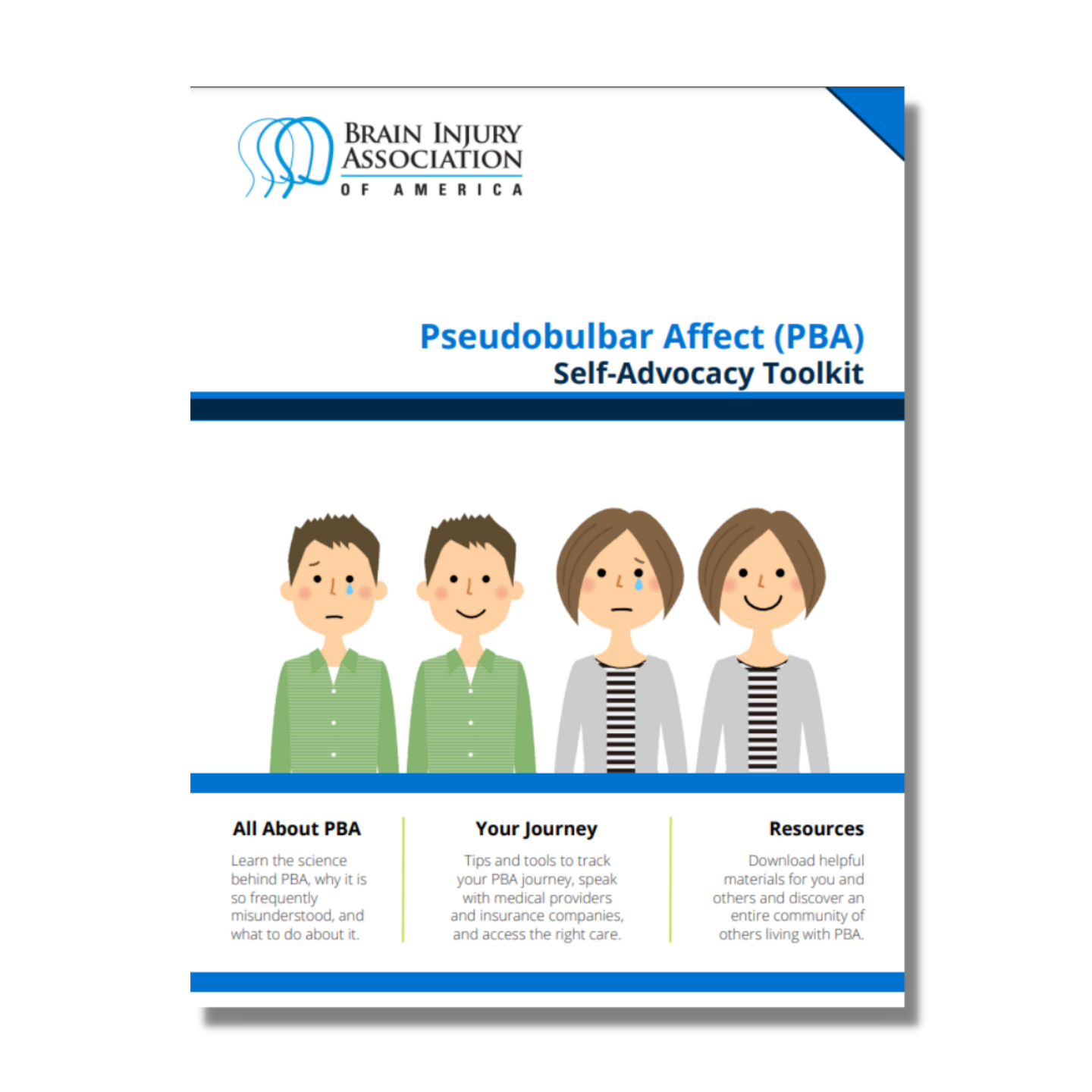For Caregivers
For PatientsFor CaregiversFor Providers
Caring for a loved one with a neurological disorder, such as a stroke or traumatic brain injury, can be difficult. Watching your loved one struggle with pseudobulbar affect (PBA), particularly undiagnosed or untreated, compounds this difficulty. It is important to remember the PBA is not a psychiatric disorder. It is a secondary
neurological condition resulting from a brain injury. You must be a champion when your loved one loses hope, isolates himself or herself, or appears depressed.
Here are some tips for being a caregiver to a loved one with PBA:


The Brain Injury Association of America (BIAA) produced a PBA Self-Advocacy Toolkit to provide self-advocacy information and resource materials.
The PBA Self-Advocacy Toolkit includes:
Fill out the form below to join our community and get your free copy of the toolkit. When you join, you will also receive resources from the Brain Injury Association of America.